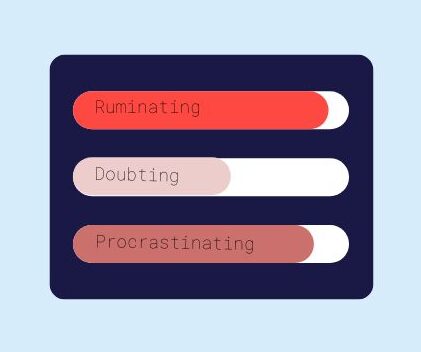
It’s a matter of time that all romantic relationships are going to encounter problems, simple and complex ones, from why does she like coffee and he only drinks tea, to why do we have to spend time with your parents when I don’t see mine every weekend?
Dealing with conflict is a core skill for romantic partners and not an easy one; at times, couples develop closed systems when handling problems and a repetitive routine gets established that could damage any opportunity for the couple to develop intimacy.
This post is about another common pattern: externalizing versus internalizing. Let’s take a look at it in detail.
What are externalizing and internalizing responses?
Externalizing Responses. Externalizing responses are those responses in which you blame your partner for the conflict, as if she or he is the responsible for things not working in your relationship.
Externalizing responses means that when there is a problem “you look by the window” to check what happened outside of your environment and you find your partner completely responsible of how you feel and the difficulties between the two of you.
Externalizing responses look like “if you wouldn’t have tell me you felt uncomfortable with my friends, none of this would be happening; it’s all your fault that we are in this situation because I cannot ever do anything right; it’s all on you to ruin our dinner by telling me that you don’t like it when I don’t tell you about my job.”
Internalizing Responses
When interpersonal problems arise, a partner with internalizing responses blame him or herself for the problem as if he or she is “looking at the mirror” (and not by the windows). For example when Peter comes home and Mariah is talking to him with a very dry tone of voice, he quickly things “what did I do, is there something I did today?”
The interaction between internalizing and externalizing responses can easily get established into a cycle and sabotage the relationship because they’re destructive by nature. Problems occur because that’s the nature of a relationship and all people involve in it is accountable of it, not just you or your partner.
Blaming your partner or blaming yourself as a “go to” response when dealing with conflict is not sustainable and deprives both of you of building an intimate relationship in which people can freely share their fears, dreams, and wishes knowing that other person will hear them, even though its upsetting.
You don’t have always agree with your partner or his/her feedback but you can learn to hear him or her in a way that doesn’t create an unhealthy cycle between the two of you.
The question then becomes, why is this occurring? Some of you may have been hurt in the past, and this may give you the tendency to shrink back from developing a relationship further. Social behaviors related to dealing with conflict are learned behavioral patterns often generated in some of our first childhood encounters and throughout different relationships.
While one behavior might have been effective as a child, it is no longer effective as an adult or while one behavior may have been effective in one relationship it doesn’t mean that it’s effective in another relationship. Unhealthy interactions when dealing with conflict develop from unsuccessful relationships as a child, or inheriting dysfunctional family patterns, or toxic adult relationships.
What to do?
Ready to make a shift? Here is an exercise to try during your next relationship conflict. Begin by asking yourself the following questions, they’ll help you to better understand what is going on, so that you can choose behaviors and make decisions with full awareness:
- Describe the problem: what are you arguing about (avoid any judgments whether it’s good or bad; simply describe the problem in behavioral terms.
- Notice and describe your response the argument: Are you blaming yourself? Are you blaming your partner?
- Describe your thoughts: What do you fear? What will you lose, or fear will happen to you if you allow yourself to hear your partner and see whether you had a part in the conflict?
- Do these, internalizing or externalizing ways of problem solving work for you now? What are the consequences?
The more you check your responses when dealing with conflict, the better is going to get for your relationship. Blaming yourself or your partner protects you both from learning to deal with conflict effectively; this is especially true if you rely primarily in “externalizing responses” and blame your partner for the problems in the relationship.
Blaming your partner works because it protects you from looking at your own experience when things go wrong, or when he/she gives you feedback you don’t like about work, friends, relatives, etc. Externalizing responses are resistant to change and if you use them, you better be careful because all what they do is alienate your partner.
If you really want to create a healthy, intimate, and fulfilling relationship, you better pay attention to these “blaming responses” before you ended up alone.
References
Gunther, R. (2010). Relationship Saboteurs: Overcoming the Ten Behaviors that Undermine Love. New Harbinger Publications.
McKay, M., Fanning, P., & Paleg, K. (2006). Couple skills: Making your relationship work (2nd ed.). New Harbinger Publications.







